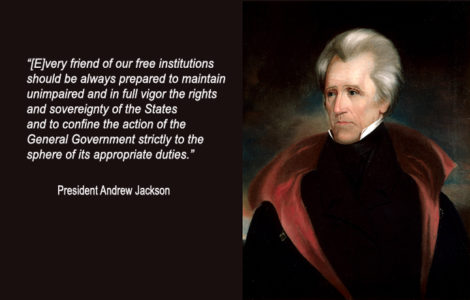ANN ARBOR, MI— The Thomas More Law Center (TMLC) and Bursch Law PLLC have filed a petition for rehearing by the entire Sixth Circuit Court of Appeals bench of a two-judge panel opinion of that court dismissing Tennessee’s challenge to the constitutionality of the federal refugee resettlement program for lack of standing.
The basis for the rehearing petition, which was filed last Friday, Sept. 6, is that the two-judge opinion is “painfully at odds” with Supreme Court precedent.
The Thomas More Law Center, a national nonprofit public interest law firm based in Ann Arbor, Michigan, agreed to represent the State of Tennessee, its General Assembly and two state legislators at no charge, after the state’s attorney general refused to bring the requested lawsuit. John Bursch of Caledonia, Michigan, represented the plaintiffs on behalf of TMLC at the oral arguments in the Sixth Circuit.
TMLC filed the federal lawsuit on behalf of the plaintiffs in March 2017, alleging that the Refugee Act of 1980, currently imposed on it by the federal government, amounts to an unconstitutional power grab – commandeering millions in state taxpayer dollars for a purely federal program.
A federal district court granted the federal government’s motion to dismiss the case. On appeal to the Sixth Circuit, a two-judge panel affirmed the lower court’s dismissal on the sole grounds that the plaintiffs lacked standing. It never reached the merits of the case.
Consequently, the petition for rehearing asks the Sixth Circuit’s full bench to consider the question: Does the Tennessee General Assembly have standing to challenge a regulatory regimen that allows the federal government to siphon dollars from the state treasury “at times and in amounts of the federal government’s choosing,” effectively diluting the legislature’s exclusive power of appropriation?
The controversy over refugee resettlement in Tennessee dates back to 2008. That’s when the state pulled out of the federal refugee program in accordance with its agreement with the federal government. But the flow of refugees continued, as the federal government simply transferred management of the program to a private agency, Catholic Charities of Tennessee, an arm of the U.S. Conference of Catholic Bishops.
Richard Thompson, president and chief counsel of the Thomas More Law Center, observed, “This case has enormous jurisprudential consequences, not only on the issue of the federal refugee resettlement program, but on the ability of Congress to force states to pay for future bizarre, fantastical, unwanted programs as proposed by current Democrat candidates without any recourse to the courts.”
Crucial to the argument for rehearing is the 2015 case of Arizona v. Independent Redistricting Commission (AIRC), wherein the Supreme Court ruled that state legislatures have standing to bring lawsuits when their legislative powers are threatened.
The petition for rehearing states, “In sum, the federal government is siphoning state funds to pay for a program from which Tennessee has withdrawn, and it can do so on any date and for any amount it wants. As the federal government admitted in its brief, Tennessee’s decision to end participation in the Refugee Resettlement Program had ‘no implications whatsoever’ on Tennessee’s obligation to fund the program. The federal government mandates Plaintiffs provide Medicaid to otherwise eligible refugees, or face termination of federal benefits.”
Accordingly, the federal government forces Tennessee to continue funding the refugee program by threatening to pull $7 billion in federal Medicaid funding, which represents 20 percent of the state’s total budget.
The rehearing petition warned, “As the federal bureaucracy continues to grow, federal officials will increasingly look to state budgets as the solution to federal funding deficits. When federal bureaucrats do so in violation of the Constitution, e.g. by coercing states to continue funding under pain of losing 20% of the state budget, state legislators must have the ability to bring suit.”
Besides Medicaid funding, the federal government also commandeers state funds for other welfare programs and for public education of the refugees.
TMLC’s complaint alleges that “the federal government has violated the United States Constitution’s Spending Clause and the Tenth Amendment” by enacting legislation and rules which purport to give the federal government authority to commandeer state funds to finance the refugee resettlement program.
The argument in favor of the General Assembly’s standing is bolstered by the fact that both chambers of the Tennessee General Assembly voted overwhelmingly in 2016 in favor of filing a civil lawsuit challenging the constitutionality of the federal refugee resettlement program. The State Senate passed Senate Joint Resolution 467, by a vote of 27-5 while the House voted 69-25 to pass the same resolution.
In accordance with SJR 467, TMLC is providing its legal services, including a potential appeal to the Supreme Court, at no cost to taxpayers.
Since January 2002 the federal government has placed more than 19,000 refugees into Tennessee cities and towns.
These refugees often arrive in poor health, with no job or English skills, and with children who are placed in public schools and in need of expensive translators and tutors. And without any waiting period they can automatically apply for all welfare programs provided by the State of Tennessee.
As a result, the federal program thwarts the state legislature’s ability to pass a balanced budget as required by the Tennessee Constitution.
In the middle of a fiscal year the federal government, for any reason, can decide to settle additional refugees into Tennessee causing the state’s spending to exceed its revenue.
In short, this purely federal program diverts state tax dollars away from other state programs that benefit deserving Tennesseans.
Clearly, the General Assembly has been deprived of its right “to spend state funds in the manner the people of Tennessee may – through their elected legislators – deem appropriate,” the petition states.
- You can read the full petition for rehearing here.
- You can read the original complaint, as filed by TMLC in March 2017, here.
Thank you for your continued support of the Thomas More Law Center. Your donations help us to be
Battle Ready to Defend America!

